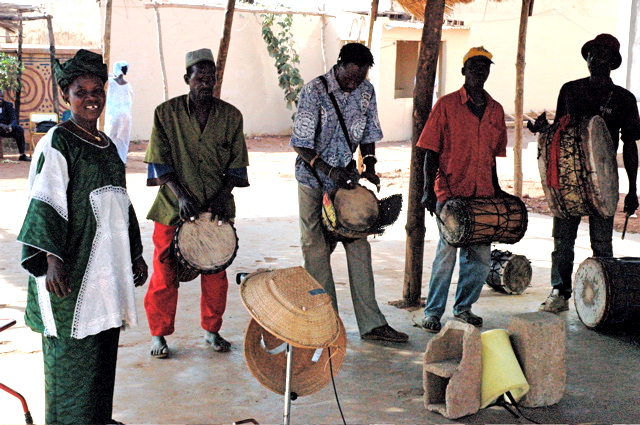Want to learn to solo on your djembe drum? Play accompaniment. It is not a penalty to play accompaniment. Accompaniment is when you hold a part or better said make a repetitive pattern or passport part “groove”. And at the same time it is playing support.
Yes, you are playing the same thing over and over. But it is a mistake to think that it is static and or “just playing a part”.
When you can make your part, your passport your repetitive pattern groove and you have learned your dunun parts your solo will come naturally.
Because with out learning how to groove , to ride the wave of rhythm, you can not really have a solo that is continuous and does not fall apart. Simply put, playing accompaniment teaches you to ride the rhythm wave that any great solo is built on.
Soloing is not simply playing licks or learned copying parts. It has to live and breathe, It has to groove. This training comes from long hours playing and holding parts for others.
And this means supporting others. Not only that you are also supporting the rhythm entity, the other people, everything!
Just blurting out ideas constantly when you are soloing or practicing will not make you a better, more creative or stronger player. It is indeed part of the process to seek the creative and explore the formless. However it needs to be balanced with the form and function of playing and understanding the dunun (bass, melody and metronome) and accompaniment locking djembe parts of any piece you are playing.
Dance classes are the perfect place to play accompaniment but it can be practiced and performed anywhere, at jam sessions as well. If you can be humble enough to support the rhythm as a whole the benefits are huge in the long run.
If you want to be a soloist the only way to really understand catching the wave of the groove is to play accompaniment for long periods of time. When you play accompaniment you want to “lock” in with the other accompaniment and support parts on djembe and dunun. I suggest instead of always focusing on the lead player seek out connection with the other members of the support team. When you are all keyed in together the magic can really happen!
When you are playing accompaniment it is also a great time to work on your technique, form, posture, dynamics and toneality. The accompaniment does not need to be as loud as the soloist next to you. Don’t try to match him or her unless they specifically ask you to play louder for example.
Any great soloist I have met always can play fantastic accompaniment and dunun. More often than not, great cooks as well, but that’s a another story entirely!

